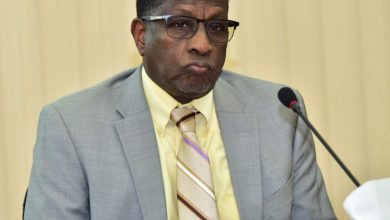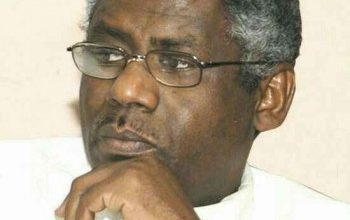On the Post-war Economy, Reconstruction and Reparations

Dr. Kamal Dafallah Bakhit
(1)
To manage and revive the Sudanese national economy after the current war between the army and the Rapid Support Forces (RSF), several measures can be taken:
1. Strengthening political and security stability:
Political and security stability must be achieved in Sudan by reaching a comprehensive and sustainable peace agreement between the warring parties. Dialogue and national reconciliation must be promoted and confidence between the conflicting parties must be strengthened.
2. Promoting investments and diversifying economic sources:
Investments must be strengthened in vital sectors such as agriculture, industry, and tourism. Incentives and facilities could be provided to local and foreign investors to attract more investments. Sources of income must also be diversified by promoting foreign trade and developing non-oil exports.
3. Strengthening infrastructure:
The infrastructure damaged by the war must be strengthened by rebuilding roads, bridges, airports, and ports as well as improving basic services such as electricity, water, and sanitation. These efforts can contribute to enhancing economic growth and attracting more investments.
4. Strengthening education and training:
Education and training must be strengthened in Sudan, by improving the quality of education and providing vocational and technical training opportunities. This can contribute to qualifying the workforce, enhancing job opportunities, and improving the standard of living of citizens.
5. Enhancing transparency and fighting corruption:
Transparency in government work and fighting corruption must be enhanced. Effective policies and mechanisms must be implemented to combat corruption and enhance transparency in the public and private sectors. These efforts can contribute to strengthening trust between the government and citizens as well as promoting economic stability.
In brief, to manage and revive the Sudanese economy after the current war, political and security stability must be strengthened, investments must be enhanced, economic sources must be diversified, infrastructure must be reinforced, education and training must be enhanced, transparency and corruption must be promoted.
(2)
Many citizens in Khartoum, Darfur, and Kordufan have been critically harmed during the current war between the army and the Rapid Commander, as they lost their property, including homes, factories, shops, and cars.
Therefore, the Sudanese government coming after the war, with the support of international organizations and donors, must implement several mechanisms to compensate those affected and help them rebuild their lives.
The following is an overview of how these mechanisms are implemented in Sudan:
1. Evaluation of losses and compensation for destroyed property:
– An independent assessment of the material losses suffered by citizens is to be conducted.
– The value of compensation is determined based on this assessment and in consultation with those affected.
– Financial compensation is to be provided to citizens to cover the costs of rebuilding destroyed properties.
2. Reconstruction Program:
The reconstruction program is to be implemented in cooperation with international organizations and donors.
This program is to include rebuilding affected areas and providing basic infrastructure such as roads, schools and hospitals.
The aim of the program shall be to provide a sustainable and appropriate environment for citizens to rebuild their lives and improve the standard of living.
3. Economic support programs:
– Economic support programs shall be provided to those affected by the war.
– This includes providing job opportunities, vocational training, and microloans to rebuild damaged businesses.
– This economic support aim shall be to enhance the financial independence of those affected and improve their economic opportunities.
It should be noted that these mechanisms and programs may differ in their implementation and details depending on the policies and procedures that the post-war government in Sudan may follow. There may also be additional programs provided by NGOs and civil society to assist those affected.
November 18, 2023


